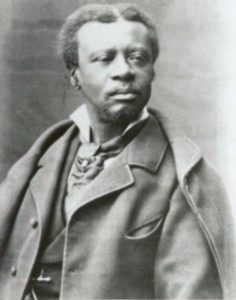
Edmund Dede
This date celebrates the birth of Edmund Dédé, a Black violinist and composer, in 1829.
The son of free Black West Indian parents, Dédé was born in New Orleans, Louisiana, the fourth generation of a free family in that city. His father was a marketman, poultry dealer, and music teacher. As a boy, Dédé first learned the clarinet but soon switched to the violin, on which he was considered a prodigy. He first studied the violin in New Orleans and then in Mexico. In 1850, he left for Paris, completing his musical education and beginning a career that lasted for nearly fifty years. As a violinist, musical director, and composer, Dédé developed a considerable reputation abroad.
He would later perform compositions of his own and those by Rodolphe Kreutzer, a favored composer of his. Dédé's teachers in his youth included violinists Constantin Debergue and Italian-born Ludovico Gabici, the director of the St. Charles Theater Orchestra. Eugène Prévost and New York-born Black musician Charles-Richard Lambert, the father of Sidney and Charles Lucien Lambert, taught him music theory.
He composed Mon pauvre coeur: Mélodie 1852, Le Serment de l'Arabe: Chant dramatique, 1865 and Chicago: Grande valse à l'américaine, 1892. He returned to New Orleans only briefly in the winter of 1893-94 for a series of successful concerts. Edmund Dédé died in 1903.
Contemporary Black Biography, various volumes
Edited by Shirelle Phelps
Copyright 1999 by Gale Research, Detroit, London
ISBN 0-7876-1275-8